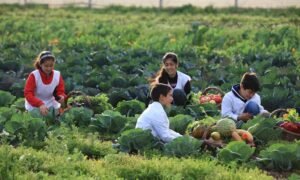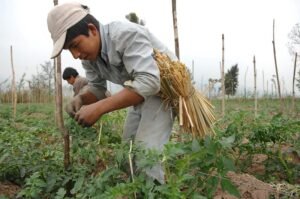Agricultural Education in Argentina. Argentina, often recognized for its vast fertile lands and robust agricultural sector, has a deeply rooted tradition of agricultural education. This sector is a critical pillar of the Argentine economy, contributing a significant percentage to the country’s GDP and playing a key role in employment. Therefore, preparing a skilled workforce to support this sector is crucial. Argentina’s agricultural education, incorporating both practical and theoretical learning, prepares students for the many challenges and advancements in the country’s agricultural sector.
Agricultural Education in Argentina: A Comprehensive Overview
Historical Background
The history of agricultural education in Argentina dates back to the late 19th century, reflecting the country’s historical emphasis on agriculture. The first agricultural schools were established in Santa Catalina and San Juan Bautista, where the objective was not only to educate, but also to promote the modernization of agriculture. The concept of agricultural education continued to evolve over the years, with the establishment of higher education institutions such as the Faculty of Agronomy at the University of Buenos Aires in 1904.
Types of Agricultural Education
Agricultural education in Argentina is offered at different levels – secondary, tertiary, and higher education.
- Secondary Agricultural Education: These institutions offer technical training in agriculture from an early age. Agricultural schools in rural areas are not just academic institutions, but they also serve as community development centers.
- Tertiary Agricultural Education: This includes technical institutes offering specialized agricultural diplomas and certificate courses.
- Higher Education: Universities such as the University of Buenos Aires and the National University of La Plata offer undergraduate and postgraduate programs in various fields of agricultural science, including agronomy, agribusiness, agricultural biotechnology, and soil science.

Curriculum and Practical Training
The curriculum of agricultural education in Argentina is a blend of theory and practice. It ranges from traditional agricultural practices to modern biotechnology. Students are taught essential subjects such as crop and animal science, agricultural economics, soil science, and farm management.
Practical training is an integral part of agricultural education in Argentina. Many institutions have their own farms where students can apply the theories they’ve learned in the classroom. They gain hands-on experience in sowing crops, managing livestock, operating machinery, and implementing sustainable farming practices.
Research and Innovation
Agricultural education in Argentina is not confined to classroom learning and field practice. It extends to research and innovation, aimed at solving real-world problems in agriculture. Universities and institutes are heavily involved in research projects, often in collaboration with agricultural firms. They strive to improve crop yield, enhance livestock health, and develop new, environmentally friendly farming methods.

Challenges and Opportunities
Despite its many strengths, agricultural education in Argentina faces challenges. These include a rural-urban divide in educational access, changing climate conditions affecting the agricultural sector, and the need for more integration of advanced technology in the curriculum.
However, these challenges bring opportunities. The introduction of digital learning can help bridge the rural-urban divide. Climate change requires innovative and sustainable farming practices, and students trained in these practices are valuable assets. With the global digital transformation, there’s an increasing demand for knowledge in precision agriculture, agtech, and farm data management, providing vast opportunities for students and educators in the sector.
The Role of International Collaboration
International collaboration plays a significant role in the development of agricultural education in Argentina. Universities and institutes often collaborate with foreign institutions for student exchange programs, research projects, and faculty development programs. This cross-cultural exchange of knowledge and practices enriches the quality of agricultural education in Argentina.

Conclusion
Agricultural education in Argentina is a robust system with a rich history, diverse offerings, and innovative research. It continues to evolve, facing new challenges, and seizing fresh opportunities. As global demand for sustainable and efficient food production grows, so does the importance of agricultural education. Argentina, with its vast agricultural resources and strong educational system, is well-positioned to contribute to this global demand, preparing the next generation of agricultural professionals.
See more:
